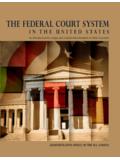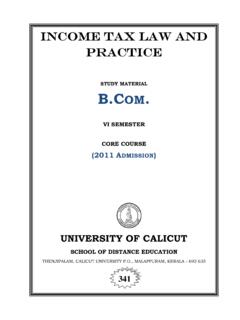Transcription of MEIN KAMPF
1 MEIN KAMPF BY ADOLF HITLER FORD TRANSLATION This pdf contains the Ford Translation of MEIN KAMPF by ADOLF HITLER. Go to to read about and to purchase the printed edition and the audio book. CONTENTS Forward Dedication FIRST VOLUME: AN ACCOUNTING 1. Childhood Home 2. Years of Learning and Suffering in Vienna 3. General Political Considerations of My Vienna Period 4. Munich 5. The World War 6. War Propaganda 7. The Revolution 8. Beginning of My Political Activity 9. The German Workers Party 10. Causes of the Collapse 11. People and Race 12. Early Development of the National Socialist German Workers Party SECOND VOLUME: THE NATIONAL SOCIALIST MOVEMENT 1. World-Concept and Party 2. The State 3. State Member vs. State Citizen 4. Personality and the Idea of the People s State 5. World-Concept and Organization 6.
2 The Struggle of the Early Days. The Importance of Speeches 7. The Struggle with the Red Front 8. The Strong Man is Mightiest When Alone 9. Basic Thoughts on the Meaning and Organization of the Storm Troop 10. The Mask of Federalism 11. Propaganda and Organization 12. The Worker s Union Question 13. German Alliance Policies After the War 14. Eastward Orientation vs. Eastern Politics 15. Self-Defense as a Right Afterword FORWARD I began my sentence in the Fortress of Landsberg on the Lech, April 1, 1924 resulting from my sentence handed down from the Munich People s Court. For the first time in my years of uninterrupted Party work, I was finally able to begin a job that many had asked me to complete and one which I myself felt was useful for the Movement. I decided to write two volumes which would not only explain the aims of our Movement, but also would reveal the birth of the Movement.
3 I believe my story will be more beneficial than a simple historical description. This work will allow me to describe my own growth in the Movement and assist in crushing the falsehoods about me created by the Jewish press. My writing is not for strangers, but for those heart-strong supporters of the Movement, and those whose minds need enlightenment. I know that men are more rarely won over by the written word than they are by the spoken word and that every great movement in this world owes its growth to great speakers, not to great writers. Still, writing is necessary to create a unified doctrine we can distribute. I must lay down its principles for all time. These two volumes, then, are meant to serve as stones which I hereby add to the foundation of the Movement. Adolf Hitler The author Landsberg on the Lech Prison Fortress On November 9, 1923 at 12:30 P.
4 M., the following men who believed in the resurrection of their people, fell in front of the Field Marshall s Hall in Munich (Hitler dedicated the first volume to these men. They were the Nazi Party members who were shot and killed during the failed putsch [putsch means coup d etat or government overthrow] of 1923 which resulted in Hitler s prison sentence): Alfarth, Felix, Salesman, born July 5, 1901 Bauriedl, Andreas, Hatmaker, born May 4, 1879 Casella, Theodor, Bank Official, born August 8, 1900 Ehrlich, Wilhelm, Bank Official, born August 19, 1894 Faust, Martin, Bank Official, born January 27, 1901 Hechenberger, Ant., Locksmith, born September 28, 1902 Korner, Oskar, Salesman, born January 4, 1875 Kuhn, Karl, Headwaiter, born July 26, 1897 Laforce, Karl, Engineering Student, born October 28, 1904 Neubauer, Kurt, Servant, born March 27, 1899 Pape, Claus von, Salesman, born August 16, 1904 Pfordten, Theodor von der, Councilor of the Supreme Court(Munich), born May 14, 1873 Rickmers, Joh.
5 , Cavalry Master (Retired), born May 7, 1881 Scheubner-Richter, Max Erwin von, Doctor Engineering, born January 9, 1884 Stransky, Lorenz Ritter von, Engineer, born March 14, 1899 Wolf, Wilhelm, Salesman, born October 19, 1898 The so-called national, constitutional authorities refused these dead heroes a proper burial ceremony. Therefore, I dedicate to their common memory the first volume of this work, for their martyrdom shall shine forever on our Movement. Landsberg on the Lech, Prison Fortress, October 16, 1924. Adolf Hitler VOLUME ONE AN ACCOUNTING 1. CHILDHOOD HOME Today, I am pleased that Fate chose the city of Braunau on the Inn of Northern Austria as my birthplace. This little town is on the frontier of the two German states whose reunion, at least for those of us from the younger generation, will be the accomplishment of a lifetime.
6 We must do everything we can to reunite these states. Austria must return to the great German mother country. Not for economic reasons. No, the economics are unimportant. Even if it did not make economic sense, it must still take place because common blood belongs in one common realm. The German people have no moral right to setup remote colonies when they cannot even unite their own children in a common state. The people will only earn the right to acquire foreign soil when the Reich has expanded to include every German. The plow will become the sword, and the wheat which becomes the bread of posterity will be watered by the tears of war. This little frontier city has now become the symbol of a great undertaking, but it also has a past that we should take as a warning today.
7 More than a hundred years ago, this humble place had the privilege of being immortalized in German history as the scene of a tragedy which shook the whole German nation. It was the day of our Fatherland s deepest humiliation when the bookseller Johannes Palm, a citizen of Nuremberg, an unapologetic Nationalist and hater of France, died for the Germany which he loved passionately even in her time of misfortune. (Johannes Philipp Palm was a book dealer in Nuremberg and in 1806 sold a pamphlet denouncing France titled Germany s Deepest Humiliation, but France previously invaded and was in control of Bavaria at that time. The Bavarian police chief turned him in. He refused to name the author and Napoleon ordered Palm to be shot at Braunau on the Inn, where Hitler was later born and where there is a monument to Palm.)
8 Palm stubbornly refused to reveal the names of his fellows who believed as he did. He was very much like our Leo Schlageter (Leo Schlageter fought in the First World War, joined the Nazi party in 1922, and committed acts of sabotage against the French occupation of the Ruhr, and was betrayed, tried and executed by the French. He was viewed as a hero in the Nazi party). And, like Schlageter, Palm was betrayed to France by a government representative. An Augsburg police director was responsible, and this act laid down the framework that formed the modern disreputable official German government under the Reich of Mr. Severing. (Carl Wilhelm Severing was a Social Democrat Official in the Weimar government controlling Germany at that time who refused to make an effort to stop the execution of Schlageter.)
9 This little city on the Inn, which was made golden as a result of the German martyrdom I mentioned, was German-Bavarian by blood and Austrian only by borders. It is here my parents lived in the late Eighteen-eighties. My father, a conscientious employee of the state as a custom s official, and my mother, occupied with the household, were both, above all, devoted to us children with unwavering love and care. I do not remember much from that period. After only a few years, my father left the little frontier town he was so fond of so he could take a new post at Passau in Germany itself. In those days, Austrian Customs Officials traveled frequently. Soon afterward, my father went to Linz where he retired from work. This does not mean the old gentleman had a chance to rest.
10 His family could be called very poor farmers and, even in his earliest days, he had not lived in a happy home. Before he turned thirteen, the small boy packed his knapsack and ran away from his home in the mountainous section of lower Austria. Against the advice of villagers, he chose to go to Vienna and learn a trade. This was back in the Eighteen-fifties, so it was not a simple decision to travel into the unknown with only three crown coins. But by the time the thirteen-year-old turned seventeen, he had passed his journeyman s examination to be a cobbler, yet he had still not found contentment. To the contrary, the long period of economic problems back then, the unending misery and wretchedness he encountered only strengthened his determination to give up his trade and become something better.




